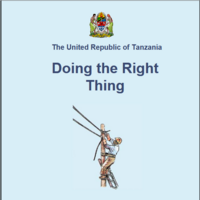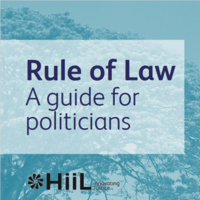Search
Books+
Searching 1,730 books
Search related to the career Law Enforcement Officer
Duties of a Law Enforcement Officer:
1. Maintaining Public Safety:
Law enforcement officers are responsible for maintaining public safety and order within their jurisdiction. They enforce laws, regulations, and ordinances to prevent and deter criminal activities. They patrol designated areas, respond to emergency calls, and take appropriate action to protect individuals and property.
2. Crime Prevention and Investigation:
Officers actively engage in crime prevention efforts by conducting patrols, surveillance, and gathering intelligence. They investigate crimes, collect evidence, interview witnesses, and apprehend suspects. They collaborate with other law enforcement agencies and use specialized techniques to solve complex cases.
3. Traffic Control and Enforcement:
Law enforcement officers enforce traffic laws and regulations to ensure road safety. They monitor traffic flow, issue citations for violations, and respond to accidents. They may also direct traffic during special events or emergencies to maintain order and prevent congestion.
4. Arrest and Detention:
When necessary, officers have the authority to arrest individuals suspected of committing crimes. They follow legal procedures, such as reading Miranda rights, and ensure the safety of both the suspect and themselves during apprehension. They may also transport arrested individuals to detention facilities and provide necessary documentation.
5. Emergency Response:
Law enforcement officers are often the first responders to emergencies. They assess situations, provide immediate assistance, and coordinate with other emergency services. They may handle incidents such as domestic disputes, accidents, natural disasters, or acts of terrorism.
6. Community Engagement:
Officers engage with the community to build trust, promote crime prevention, and address concerns. They participate in community events, conduct educational programs, and establish partnerships with local organizations. They may also provide guidance and support to individuals in need, such as victims of crimes or vulnerable populations.
7. Report Writing and Documentation:
Officers are responsible for accurately documenting incidents, investigations, arrests, and interactions with the public. They write detailed reports that serve as legal records and aid in further investigations or court proceedings. Clear and concise documentation is crucial for maintaining accurate records and ensuring transparency.
8. Testifying in Court:
Law enforcement officers may be required to testify in court as witnesses, providing factual accounts of incidents or investigations. They present evidence, answer questions from attorneys, and assist in the administration of justice. Their testimony helps establish the credibility of the case and contributes to the determination of guilt or innocence.
9. Training and Professional Development:
To stay updated with evolving laws, techniques, and technologies, law enforcement officers undergo regular training and professional development. They attend courses, workshops, and seminars to enhance their skills in areas such as firearms, self-defense, crisis intervention, cultural sensitivity, and legal procedures.
10. Enforcement of Laws and Regulations:
Law enforcement officers enforce a wide range of laws and regulations, including criminal, traffic, and civil laws. They ensure compliance with statutes, ordinances, and court orders. By upholding the law, they contribute to maintaining social order and protecting the rights and well-being of individuals within their jurisdiction.
Source: Various AI tools
Law
Books tagged law
Elders
Books tagged elders
Citizenship
Books tagged citizenship
Searched in English.







































